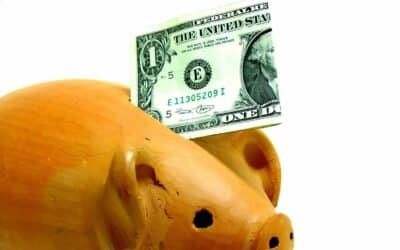Question: I am a salaried employee and I also receive self-employment income from a side business unrelated to my salaried employment. Am I entitled to a qualified business income tax deduction for my earnings?
Answer: Taxpayers meeting the statutory requirements are entitled to a deduction of 20% of their qualified business income. Qualified business income (“QBI”) generally consists of income derived from sole proprietorships and so-called pass-thru entities such as partnerships, limited liability companies and S corporations where business income is reported on the owners’ personal income tax returns. Your self-employment income may be eligible for the QBI deduction. No QBI deduction is allowed with respect to your salary as working as an employee does not constitute being engaged in a trade or business. However, the fact that you are employed does not negate your right to claim a QBI deduction with respect to your self-employment income.
Your QBI deduction may be limited or eliminated if the taxable income on your personal tax return exceeds certain threshold amounts. The initial thresholds were $315,000 for married taxpayers filing joint income tax returns with their spouses and $157,500 for all other filers. The thresholds are adjusted each year for inflation. For the 2019 calendar year, the threshold for joint tax filers is $321,400 and the threshold for other filers is $160,700.
A somewhat complex formula limits the QBI deduction for taxpayers whose income exceeds these thresholds. The limitation is the greater of (a) 50% of the aggregate wages paid by the business or (b) the sum of 25% of the aggregate wages paid by the business and 2 ½% of the business equipment and other property for which depreciation deductions may be claimed. These limits are phased in for the first $100,000 or $50,000 of taxable income in excess of the applicable threshold, depending on your filing status. Less common circumstances can also impact your QBI deduction. Certain dividends from real estate investment trusts and publicly-traded partnership income are included in the QBI calculation.
The 20% QBI deduction is unavailable to the owner of a specified service trade or business where the owner’s taxable income exceeds the foregoing thresholds. If you are engaged in the practice of medicine, law, accounting and a number of other service-oriented businesses and your income exceeds the applicable threshold, then you are ineligible for the 20% deduction. Expressly excluded from the specified trade or business classification are architects and engineers.
If you manage to satisfy these hurdles, then you are entitled to a deduction of 20% of the excess of your taxable income for the year over the amount of net capital gain that you incur for the tax year. Your net capital gain is the difference between the capital gains versus the capital losses you report on your return. You may have the opportunity to control the amount of your QBI deduction based on when you sell stocks, bonds and other capital assets.
As with many complex tax provisions, there is no substitute for advance planning. You should carefully review your personal situation with your tax advisors to estimate the amount of your tax liability. In the right circumstances, however, you can benefit from a 20% deduction on your self-employment income.
A form of this article was published by Forbes. To view, click here.
The Tax Corner addresses various tax, estate, asset protection and other business matters. Should you have any questions regarding the subject matter or if you have questions you want answered, you may contact Bruce at (312) 648-2300 or send an e-mail to [email protected].


